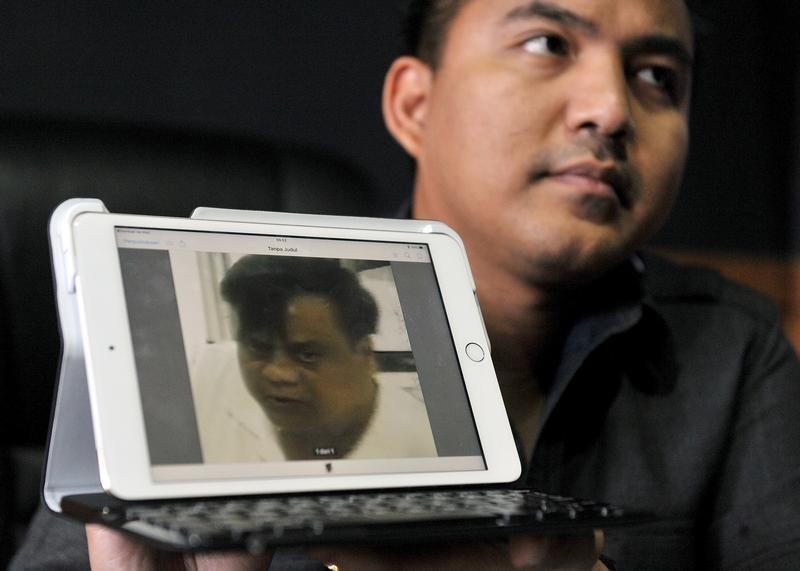By Rupam Jain Nair and Andrew MacAskill
NEW DELHI (Reuters) - India's national security adviser devised a plan to secure the arrest of a fugitive Mumbai gangster in Indonesia as part of a strategy to hunt down India's most-wanted man, Dawood Ibrahim, police and home ministry sources told Reuters.
Superspy Ajit Doval, who is reputed to have handled Rajendra Nikalje - also known as Chhota Rajan - as a security asset in the past, wants to bring him in from the cold to help target Ibrahim who is reportedly living in Pakistan.
India accuses Ibrahim of masterminding a dozen bombings and grenade attacks in Mumbai in March 1993, killing 257 people and wounding more than 700 in the deadliest such attack in the nation's history.
"The government is committed to bringing back Dawood and we will deploy every strategy to deport him," Kiren Rijiju, junior home minister, told reporters on Tuesday after Rajan was held a day earlier on the Indonesian resort island of Bali.
Doval, 70, a decorated former police and intelligence officer with a track record of daring counterinsurgency missions, has exceptional influence in Prime Minister Narendra Modi's inner circle.
He has claimed effective control over foreign policy towards India's neighbors, sources say, sidelining a diplomatic establishment that has been left to manage ties with strategic partners such as the United States.
With the division of labor comes a cloak-and-dagger approach and a fixation with settling scores that could have regional security implications. India hanged one of the Mumbai bombers in July, 22 years after the attacks.
Officials in India's home ministry and Central Bureau of Investigation, speaking on condition of anonymity, said Doval had played a key role in orchestrating the arrest of Rajan.
Rajan and Ibrahim once worked together carrying out murders, extortion and smuggling weapons in Ibrahim's organization, known as D Company.
The pair fell out over Ibrahim's alleged involvement in the Mumbai blasts and then fought a bloody battle for control of the underworld of the financial capital - a milieu where gangsters, politicians and Bollywood stars mix freely.
India and the United States accuse Dawood of financing Islamist militant groups, including al Qaeda and Lashkar-e-Taiba. The U.S. Treasury has frozen his assets, and accuses him of drug running to Europe.
Indian authorities say they have shared evidence of Ibrahim's whereabouts with Pakistan, which rejects suggestions that he is living there.
SMILE PLEASE
Indonesian police released a photo of the diminutive Rajan - his nickname means "little" - dressed in a white polo shirt, smiling at the camera and guarded by a single officer.
Rajan, 55, had been living incognito in Australia but, fearing his enemies would find him and kill him, was able to fly to Bali where he was arrested without putting up resistance, according to news reports.
Doval was involved along with two of Rajan's men in a botched operation in 2005 to assassinate Ibrahim at his daughter's wedding in Dubai, former home secretary R.K. Singh told a television channel in August.
Doval has previously denied the incident and said he was watching television at his home. He did not respond to requests for comment on this story.
Ibrahim's gang allegedly wounded Rajan in an assassination attempt at a Bangkok hotel in 2000. After being treated at a hospital, Rajan escaped using a rope made of bedsheets.
Atul Chandra Kulkarni, Mumbai's joint commissioner of police, told Reuters Rajan's men kept a close watch on Ibrahim and his associates. The arrest could yield new intelligence that may help pressure Pakistan to deport Ibrahim, he added.
M.N. Singh, Mumbai's joint commissioner of police at the time of the 1993 blasts, agreed that Rajan's arrest was a coup for India.

"But I am not sure if an old, ailing and retired gangster would be our best bet to drag Dawood Ibrahim out of Pakistan," he said.